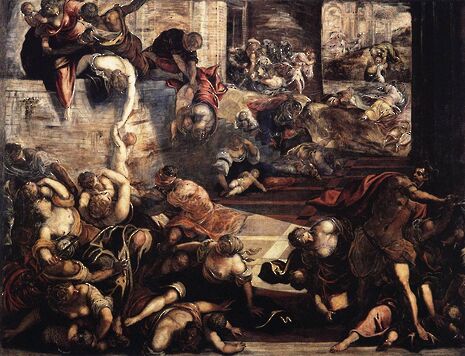The abolition of A-Level History of Art cannot be ignored
We cannot overlook the cultural importance of History of Art at A Level, argues Charlie Stone

Of all the controversial goings on in 2016, perhaps the abolition of History of Art at A Level has gone under the radar. Brexit and Trump have rightly been dominating our headlines, for both will have a lasting impact on politics, society and our own lives. But AQA’s decision to drop the History of Art in schools, the last exam board to do so, represents a cultural shift in the government’s attitude towards education, and a cultural shift for the worse.
The decision is part of a number of changes to the curriculum set by former education secretary, Michael Gove, in a bid to cut more creative subjects to pave the way for those supposedly more challenging. Top academics have condemned the decision, and hundreds, among them world leading experts such as the University of Oxford’s Prof. Craig Clunas and Christina Prescott-Walker, senior vice-president of Sotheby’s, New York, have signed an open letter to the exam board lamenting that “a subject of profound social, cultural and economic importance [is] disappearing from the UK A-Level landscape.”
The University of Cambridge’s History of Art department responded too, its head, Dr Rosalind P. Blakesley, remarking that the abolition of this A Level is “incomprehensible”, for “any development which results in a lessening of choice for school students is to be deplored”. While the University – along with most others – does not require prospective students to have taken History of Art A Level in order to pursue it here, the loss of such an option will reduce awareness of the subject area, which might in turn have a detrimental effect on the number of students applying to universities to take this degree.
The decision, it seems, represents a total lack of government awareness over the value of studying History of Art. As Blakesley points out, the creative and cultural industries, which require many skills that art historians acquire, play a significant part in the UK’s economy and are part of the reason its culture is so well-known and attractive around the world. We live in a world that is full of artefacts of human history in painting, sculpture, architecture as well as in all of the new visual arts of television, cinema and social media, and to study History of Art allows an insight into the interpretation and contextualisation of visual objects, allowing us to understand the past and therefore the present. Art History is far more than the discussion of a painting on a wall. The skills of interpretation and insight taught by a degree in History of Art are so fundamental in so many spheres of work in the professional world that the government’s trivialisation of the subject in schools is unforgivable.
Perhaps even more worrying, though, is the impact this decision could have on the divisions between private and state schools. Simon Schama, presenter of BBC’s The Face of Britain, tweeted in response to the decision: “So basically the idea is to eliminate the deep wisdom of the past (and present) altogether for anyone not in private school. Heinous”, and it is hard not to agree with him. Independent schools will be free to offer History of Art in their curriculum (this is because the Pre-U, an alternative to A Level which is only taken in independent schools, still has History of Art in its curriculum) whereas the A Level’s abolition will limit options for state schools. Not only, then, does this decision deal a blow to the creative capital of Britain, but it seems to fuel elitism.
History of Art, though, has long been branded an elitist subject by its critics. Only a handful of state schools currently offer it, and it has become an expensive course for exam boards to maintain, with only 839 students sitting the A Level exam earlier this year. The government’s response, to ease it out of the curriculum, was the easy decision: and the wrong one. If something that is an undeniably valuable option is struggling for popularity, it makes far more sense to increase awareness and promote interest in its area rather than speed up its decline. Our government does of course have many things on its mind, this year perhaps trumping any other in recent memory, but it can’t neglect issues like these. Culturally, the loss of History of Art at A Level is catastrophic, and something we should not take lightly.
 News / Judge Business School advisor resigns over Epstein and Andrew links18 February 2026
News / Judge Business School advisor resigns over Epstein and Andrew links18 February 2026 News / Hundreds of Cambridge academics demand vote on fate of vet course20 February 2026
News / Hundreds of Cambridge academics demand vote on fate of vet course20 February 2026 News / Petition demands University reverse decision on vegan menu20 February 2026
News / Petition demands University reverse decision on vegan menu20 February 2026 News / CUCA members attend Reform rally in London20 February 2026
News / CUCA members attend Reform rally in London20 February 2026 News / Gov grants £36m to Cambridge supercomputer17 February 2026
News / Gov grants £36m to Cambridge supercomputer17 February 2026









